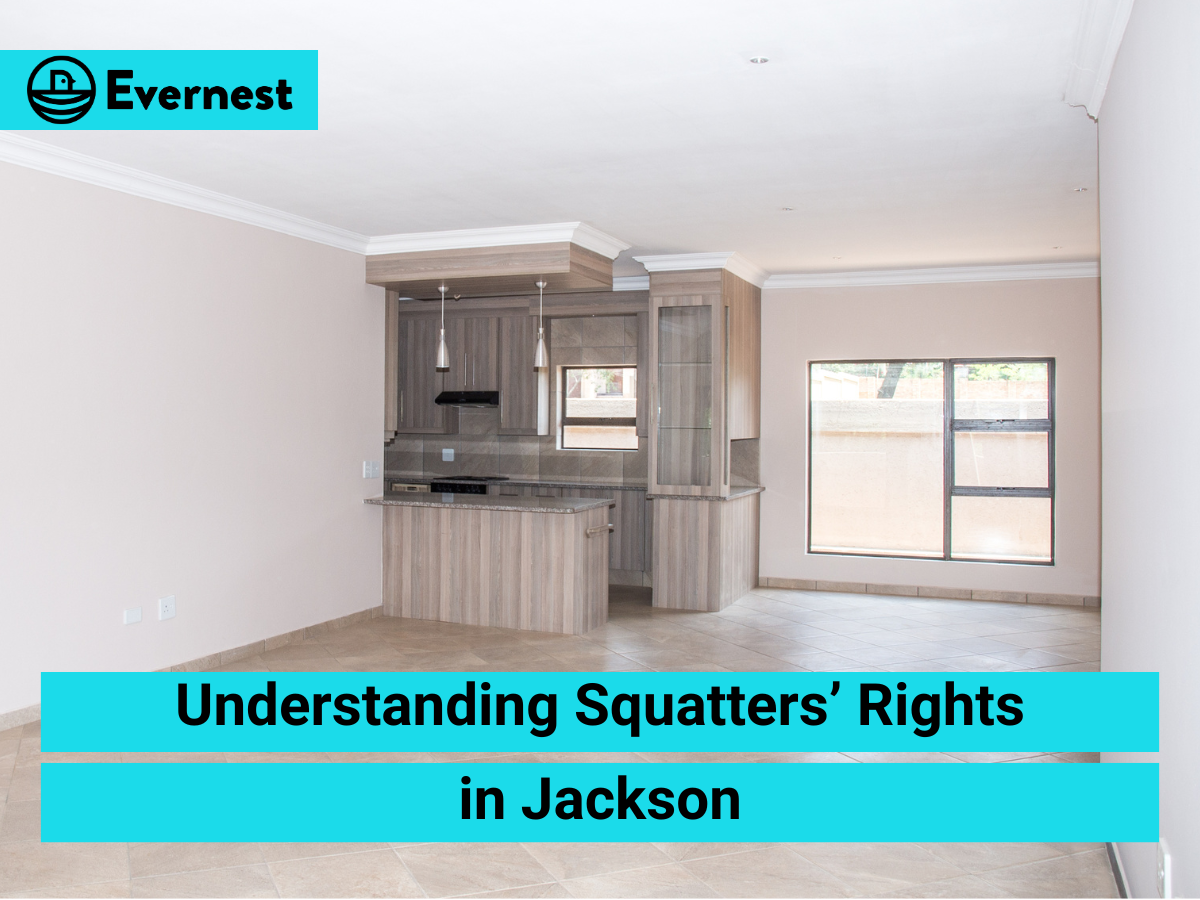Squatting is a complex and controversial issue that affects many cities, including Jackson. As a property owner it is crucial to have a comprehensive understanding of the legal landscape surrounding squatting, the rights of property owners, and the available legal recourse for all parties involved. This article aims to provide a thorough exploration of these topics, shedding light on the unique aspects of squatters' rights in Jackson.
Disclaimer: The information provided in this blog does not, and is not intended to, constitute legal advice; instead, all information, content, and materials available in this blog are for general informational purposes only.
The Legal Definition of Squatting
Squatting refers to the act of occupying a property without the permission of the owner, usually with the intention of establishing a long term residence. While squatting is generally considered illegal, squatters can stake claims to the property they occupy depending on the circumstances. The criteria for these claims varies between states and municipalities and Jackson has its own specific laws regarding squatters’ rights.
The History of Squatting Laws in Mississippi
The concept of squatting dates back centuries and has evolved over time, and it is helpful to understand Mississippi’s history in order to understand the present. The state has a long history of agricultural land and small-scale farming, and squatters' rights have played a role in shaping property ownership.
Historically, individuals who cultivated and improved the land, even without formal ownership, could eventually gain legal recognition and ownership through adverse possession. As times have changed, however, these concepts have evolved and ownership has turned into a more formal process. In modern times it is generally the title holder who is viewed as the party having legitimate claim to a property.
The Difference Between Trespassing and Squatting
It is important to distinguish between trespassing and squatting. Trespassing occurs when someone unlawfully enters another person's property without permission and is considered a misdemeanor offense. Squatting, on the other hand, involves the occupation of an abandoned or vacant property for an extended period, often with the intention of asserting rights of ownership and is treated as a civil, rather than criminal, matter.
In Jackson, as in many jurisdictions, the distinction lies in the duration and intent of occupancy. While trespassers can be swiftly removed from a property, squatters may have legal recourse to claim ownership rights if certain conditions are fulfilled.
The Process of Adverse Possession in Mississippi
Adverse possession is a legal process that enables individuals who meet specific criteria to gain lawful ownership of property through continuous and open occupation for a legally defined period.
Requirements for Adverse Possession
In Mississippi, the legal period for adverse possession is ten years. This means that if a person occupies a property for ten years without interference from the legal owner, they may acquire ownership rights.
For adverse possession to be valid, certain requirements must be met. Firstly, the occupation must be continuous, meaning that the individual should maintain exclusive control over the property without interruption. Additionally, the occupation must be open, not hidden or secretive, and must occur without the permission of the legal owner.
Furthermore, the squatter must openly treat the property as their own, meaning they should act as if they are the true owner by paying property taxes, making improvements, and maintaining the property.
The Legal Procedure for Claiming Adverse Possession
If a squatter in Jackson believes they meet the requirements for adverse possession, there is a legal procedure to follow. This process involves filing a claim of adverse possession in the appropriate court and providing evidence of meeting the necessary criteria.
The court will consider various factors, including the duration of occupancy, the actions taken by the squatter to assert ownership rights, and any counterclaims made by the legal owner. The outcome may result in the squatter gaining legal ownership, or it may lead to eviction proceedings.
The Rights of Property Owners
Property owners need to understand their rights when it comes to squatters. While squatters' rights may exist under certain circumstances, property owners also have legal protections to safeguard their ownership through security measures and eviction.
How to Prevent Squatting
Prevention is often the best strategy when it comes to dealing with squatting. Maintaining regular property inspections, securing the property with fences or locks, installing surveillance equipment, developing good relationships with neighbors, and promptly addressing signs of unauthorized occupation can deter potential squatters. If you are unable to devote sufficient time to these measures on your own, hiring a professional property management company can help.
Legal Recourse for Property Owners
If squatting does occur on a property, property owners in Jackson have legal recourse to address the situation. Owners can initiate eviction proceedings through the court system to remove squatters and regain lawful possession of their property. Having a property management company or retaining legal counsel to guide you through this process is important.
Squatters’ Rights in Jackson
Just as property owners have rights to protect their assets, squatters can be granted legal ownership over property if they meet certain criteria. These laws are intended to help vulnerable individuals and to recognize those who have openly occupied a piece of property long enough to stake a reasonable claim to it.
Legal Protections for Squatters
In Mississippi, squatters can in some cases stake ownership claims under adverse possession. This protects individuals who have openly occupied a property for a certain length of time and have maintained, improved, and paid taxes on it as though it were their own.
In Jackson, various organizations and government agencies also provide support services for individuals facing housing insecurity. It is important for squatters to seek assistance from the appropriate resources to address their housing needs rather than occupying abandoned or vacant properties illegally. These agencies can provide information and guidance on housing options, financial assistance, and legal rights.
The Process of Eviction for Squatters
In order to evict squatters, property owners must initiate formal eviction procedures. If the court rules in favor of the property owner, the squatters will be legally obligated to vacate the property. Failure to comply with the court's decision can lead to further legal consequences, including potential fines or penalties.
Final Thoughts: Squatters’ Rights in Jackson
In conclusion, understanding squatters' rights is important for anyone looking to invest in property in Jackson, Mississippi. While squatting is often seen as illegal, the law acknowledges that circumstances may exist where squatters are entitled to protections. Property owners should remain vigilant in protecting their properties and take appropriate action to prevent unauthorized occupation.
Looking for a Property Management Company in Jackson?
If you own property in Jackson, Mississippi, and are seeking professional assistance in managing your properties, reach out to our local team today!


